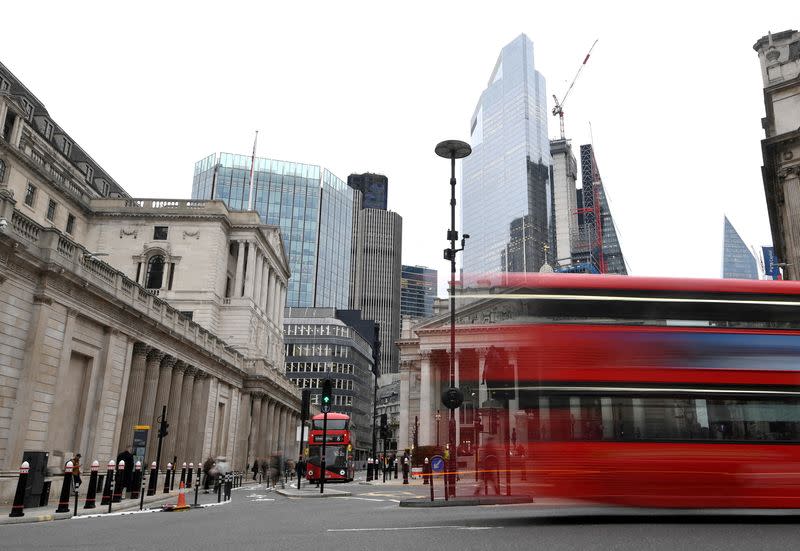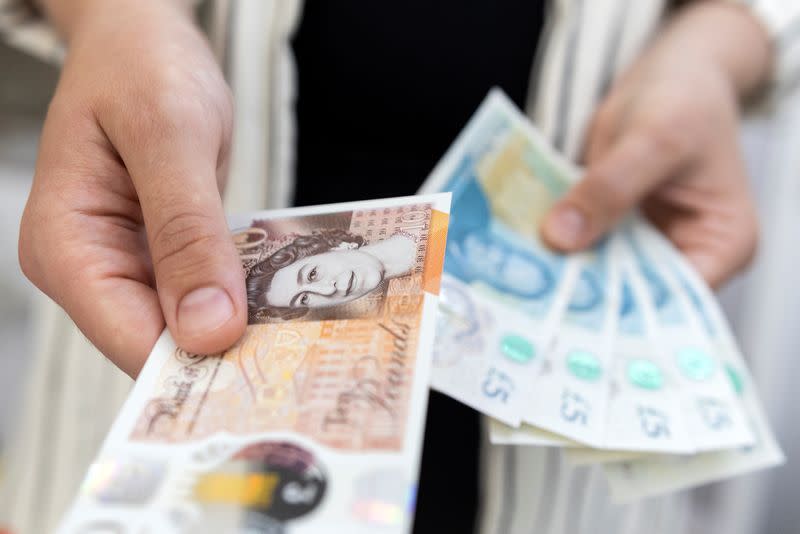Millions will join breadline in recession-hit UK, NIESR warns
By Andy Bruce
LONDON (Reuters) - Britain's worsening cost-of-living crisis will cost millions of households their savings unless the government increases support for households immediately, a leading think tank warned on Wednesday.
The National Institute of Economic and Social Research (NIESR) said Britain was sliding into a recession that will hammer the most deprived areas of the country and force more than a million households to choose between heating their homes and purchasing sufficient food.
Consumer price inflation hit a 40-year high of 9.4% in June, and NIESR expects it to be slow to fall, averaging 6.9% next year.
While the final two candidates in the race to become Britain's next prime minister, Liz Truss and Rishi Sunak, debate tax cuts and public spending restraint, NIESR said resources should be diverted urgently to help the most vulnerable.
NIESR Director Jagjit Chadha said ordinary Britons would pay the price for years of what he viewed as under-investment in public services, which had left them vulnerable to successive economic shocks like Brexit, COVID-19 and the war in Ukraine.
"It needs urgent and sustained, and credible, intervention by successive governments," Chadha told reporters at a news conference.
"Unfortunately, it's not clear to me that we have the political institutions to deliver that."
A recession was likely to begin in the current quarter, with a 50/50 chance that the economy would end this year smaller than its level in late 2021, NIESR's forecasts showed.
The economy was likely to see annual average growth of 3.5% this year - reflecting a favourable comparison against output in early and mid 2021, when COVID restrictions were still in place - but would grow just 0.5% in 2023, NIESR predicted.
Last week the International Monetary Fund also pencilled in growth next year of 0.5% for Britain, the lowest forecast among the Group of Seven advanced economies.
DESTITUTION
NIESR said the number of households with no savings was set to double to 5.3 million, or one in five, by 2024.
Some 1.2 million households face destitution in the coming year, whose food and energy bills will exceed what is left of their income after paying for housing and tax.
"These are devastating numbers," said NIESR research lead Arnab Bhattacharjee.
NIESR said the government should immediately reinstate a 25 pound ($31) weekly uplift to the Universal Credit state benefit that had helped many people weather the COVID-19 pandemic, and raise the energy bills grant for low-income households to 600 pounds from 400 pounds.
Adding to the strain on households, the Bank of England would need to raise its main interest rate to 3% by the end of next year to contain inflation, NIESR said - much higher than the 2.25% peak predicted in the latest Reuters poll consensus of economists.
The BoE is likely to raise Bank Rate by 50 basis points on Thursday, that poll showed, which would represent the biggest hike since 1995. [ECILT/GB]
($1 = 0.8181 pounds)
(Editing by David Milliken)

 Yahoo Finance
Yahoo Finance 

